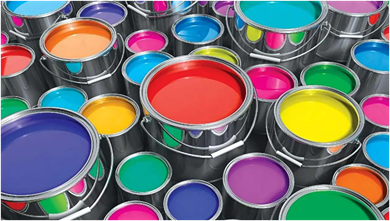The Paint Manufacturers Association of Nigeria (PMA) has voiced worry about the actions of paint adulterators and fakers in the paint business, claiming that the problem is causing its members to lose money on a regular basis as a result of the unethical behavior of unscrupulous persons.
The Chairman of the PMA, Ambolu Babatunde, stated at the PMA’s 2023 annual meeting in Lagos, titled “Post fuel subsidy removal-Survival strategies for paints manufacturers,” that faking and adulteration of premium brands are major challenges in the paint industry, and that the challenge has defied some proposed solutions.
He bemoaned that the reputation of the companies whose products were tainted was also harmed, claiming that the Standards Organisation of Nigeria (SON) effort had not deterred the perpetrators of the act, and that monitoring and enforcement of paint standards had not produced the desired results.
“We believe and hope that by improving regulatory frameworks and rigorous monitoring and enforcement of industry standards, adulteration and quackery will be eliminated.” Also, we feel that developing a National Paint Policy for the country, among other things, will aid in addressing the issue of adulteration and quackery in the business,” he recommended.
He stated that the theme for the yearly conference was chosen because members of the group needed to discuss methods and means to survive under the current economic problems provided by the Federal Government’s sudden and unplanned reduction of petroleum subsidies.
He bemoaned that the federal government’s move had further disturbed social and economic activity in the country, emphasizing the necessity for paint manufacturers in the country to turn within and devise measures to keep their businesses afloat.
He went on to say that the year 2023 began with uncertainty owing to election issues, and that the environment has a detrimental impact on business.
He stated that cash scarcity made the business climate and even life hellish as a result of CBN policy, saying that the removal of fuel scarcity made doing business caustic, leading to higher costs of products and services.
He cited the issue of poor and deteriorating road networks, which affects the distribution of goods and services as well as the mobility of people.
On the rail network, Babatunde expressed worry about the country’s lack of rail, claiming that its introduction would reduce distribution costs and lengthen the road network.
He noted that electricity supply has grown more erratic and epileptic than before, emphasizing that with rising energy costs and the consequent consequences on other industrial expenses, membership in the African Continental Free Trade Area will be a phantom.
The Chairman stated that raw material scarcity remains a big concern, pointing out that the majority of these materials are petrol-chemical compounds, and suggesting that getting the nation’s refineries back up and running would be a huge step toward solving the challenges.
In the future, he urged the Federal Ministry of Industry, Trade, and Investment to move quickly on the Paint Policy Project so that paint manufacturers and their investments in the industry can be safeguarded and rewarded.
“We urge all levels of government to make it a rule that their projects are painted with paints made in Nigeria, and they should make their contractors do the same without any excuses,” he said.
Ogundimu Leke, Principal Partner, Tomfilms Associates International Limited (Management Consultants), also spoke about some survival strategies for paint manufacturers in the post-fuel subsidy removal era, citing technological advancements as a necessity rather than a luxury.
He recommended Nigerian businesses to invest in digital technologies because it might be a game changer.



